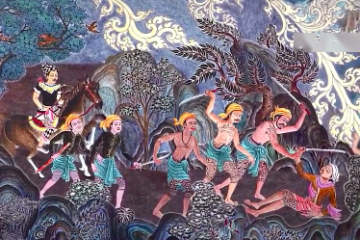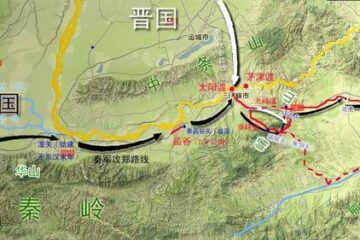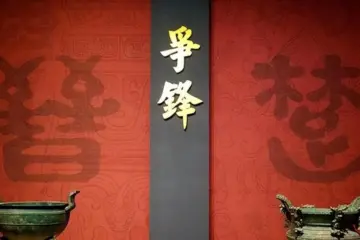The youth of Xian Zhen remains a mystery, as historical records cannot verify it. However, it is certain that he was a staunch ally and close friend of Prince Chong Er, a vassal of the Jin state, and they were like brothers to each other, both as loyal subjects and friends.
In their close-knit group of friends, there were several young men, such as Zhao Shuai, Xu Chen, Luan Zhi, and Xi Gu, all of them from noble families. Their daily life revolved around studying and practicing martial arts together, leading simple yet fulfilling lives.
During that time, they were spirited and pure, leading joyful lives with their sole aspiration being to inherit their fathers’ legacies and uphold their family’s honor.
At that time, the ruler of the Jin state was Duke Xian, the father of Prince Chong Er. He was known for his vigorous energy and iron-fisted rule, spending his life in battles, conquering numerous lesser-known neighboring states, and bringing a large part of what is now Shanxi province under his control. Under his leadership, Jin grew increasingly powerful and became the largest state, aside from the Chu state, during the early Spring and Autumn Period.
Men full of vigor have a profound love for two things: warfare and procreation. Duke Xian had many wives and fathered numerous children. Among them, Chong Er, was rather inconspicuous. The legitimate heir was his elder brother, Crown Prince Shen Sheng, and the most favored by Duke Xian was his younger brother, Xi Qi.
Far away from the political struggles, Chong Er could have led a carefree life as a noble son of a powerful state, living happily with his good friends. However, history played a cruel trick on them, as if overnight, the entire world suddenly changed.
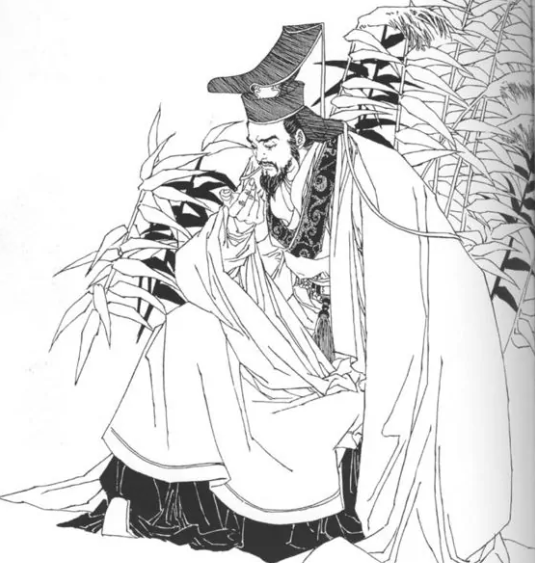
Here’s what happened: Duke Xian was talented and capable, but in his later years, he fell under the spell of a young and beautiful concubine named Li Ji. He insisted on making his beloved youngest son, Xi Qi, the heir to the throne. To eliminate any potential obstacles, Duke Xian and Li Ji not only forced the Crown Prince Shen Sheng to death but also sought to drive away Chong Er and other princes who might pose a threat to Xi Qi. This incident in Jin’s history became famous as the “Li Ji Rebellion.”
With father and son at odds, Chong Er had no choice but to flee. Despite the vastness of Jin, there was no place for him to seek refuge, and his family abandoned him.
At this critical moment, Xian Zhen had three choices before him:
- Join forces with Li Ji, betray Chong Er, and leave him to his fate.
- Stay in Jin, remain silent, and seek personal safety through prudence.
- Follow Chong Er, wander with him, and perhaps, there might be a chance to regain their position.
The first option was unacceptable to Xian Zhen, and he could not bear the second. Eventually, he chose the third path, the most dangerous and arduous one.
This path, though filled with thorns, offered hope.
As long as there is hope, the gamble of one’s life may turn in their favor, and the only chip in their hands is the identity of being Chong Er, a noble son of the state.
Believing in this same chip were Zhao Shuai, Xu Chen, and Chong Er’s two uncles – Hu Yan and Hu Mao. However, Luan Zhi and Xie Gu chose to stay in the Jin state, remaining silent and seeking personal safety through prudence.
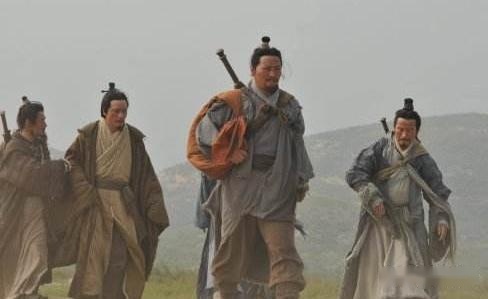
After all, not everyone can leave their homeland and abandon their families for the sake of friends. It requires courage, perseverance, and an unwavering spirit of dedication.
And so, this group of privileged young noblemen began their journey of wandering, not realizing that it would keep them away from their homeland for a full nineteen years. They encountered the grasslands of the northern frontier where cattle and sheep roamed, the poor yet pretentious small states of the Central Plains, the extravagant and decadent city of Linzi in the state of Qi, and even the enemy territory of Chu in Ying, far from the Central Plains. Each step they took left them burdened and exhausted.
During these years and in these places, they experienced many hardships – they suffered, starved, endured disdainful looks, and were even hunted down by the treacherous villains responsible for the chaos in the Jin state. Those wicked men would not let them go easily.
The endless escape, the constant fear, and the daily struggle to survive were unbearable for ordinary people, let alone this group of privileged noble sons. However, Xian Zhen did not give up. He firmly believed that heaven would not abandon them. The more hardships they faced, the stronger this belief grew. This powerful conviction made him more determined, more resilient, and eventually turned him into a warrior who could face any difficulty – a warrior armed in spirit.
Throughout these years, rulers like Duke Huan of Qi and Duke Xiang of Song briefly gave them hope of returning home. However, these hopes were dashed one after another due to various reasons, forcing them to keep moving and relying on luck. In such a vast world, was there really no country that could help them achieve their desire to reclaim their homeland?
Faced with one setback after another, Chong Er once contemplated giving up on himself. He married and had children in the Rong and Di lands of the northern frontier. Later, he was forced to flee to Linzi, the capital of Qi, where he indulged in the gentleness of Qi women, completely giving up his dream of restoring his country. He merely sought a peaceful and joyful life, living out his remaining years in pleasure and leisure.
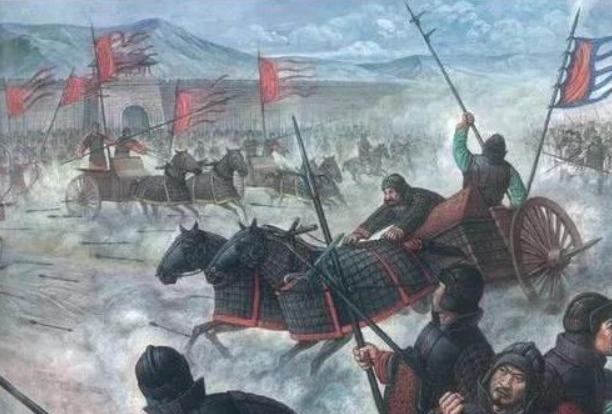
Not everyone possesses the same strong spirit as Xian Zhen. In most cases, hardships do not strengthen a person’s will; instead, they can extinguish one’s ambitions and aspirations.
Facing Chong Er’s moral decline, Xian Zhen felt distressed and frustrated. This carefree and drifting lifestyle was not what he desired; he yearned for a time of burning passions and soaring ambitions.
“Dear Prince, the internal turmoil in Jin state is endless. In this critical moment of survival, Jin needs you, and its people need you. You are renowned as a virtuous and capable prince in the entire realm. Only you can put an end to the chaotic situation in Jin. You cannot continue this path of degradation!” But Chong Er did not listen to Xian Zhen.
After a simple calculation, they had been away from Jin state for a full 19 years. The once spirited youth had aged, and the path ahead seemed utterly unattainable. “Zhen, don’t you find our quest to restore the country absurd?” Xian Zhen felt despair at Chong Er’s numbness.
Helpless, he decided to take a daring step. If the prince wouldn’t pick himself up, they would force him to do so! Without hesitation, Xian Zhen, along with Zhao Shuai, Hu Yan, and others, took advantage of Chong Er’s drunken state and abducted him overnight from Linzi, directly transporting him to the state of Chu, continuing their quest for international aid.
Even though Xian Zhen and Chong Er were like a lord and a subject, their bond was strong, and Xian Zhen’s actions might have seemed disrespectful. However, in the belligerent Spring and Autumn Period, gentlemen seemed to have short tempers. Whether you were a ruler or not, if you made a mistake, you deserved to be reprimanded. If you were an inept ruler, they wouldn’t even bother with you, telling you to go to hell!
Chong Er understood this, and though slightly annoyed, he was grateful that Xian Zhen and the others corrected his mistakes.
Xian Zhen smiled. Indeed, he had chosen the right person to follow. Having an independent personality was the charm of people from the Spring and Autumn Period. Modern Chinese people living under an authoritarian regime should applaud them!
The situation in Jin state was indeed dire. After Duke Xian passed away, his successor, Xi Qi, and his mother, Lady Li Ji, were immediately assassinated by supporters of Crown Prince Shen Sheng. Then Chong Er’s younger brother, Yi Wu, returned to Jin with the help of the Qin state and ascended to the throne as Duke Hui of Jin. He turned against the supporters of Crown Prince Shen Sheng and shifted his focus to the exiled leader, Chong Er. Consequently, Duke Hui ordered a pursuit of Chong Er and initiated a series of dreadful political persecutions, where one after another of the old ministers fell under the tyrant’s blade.
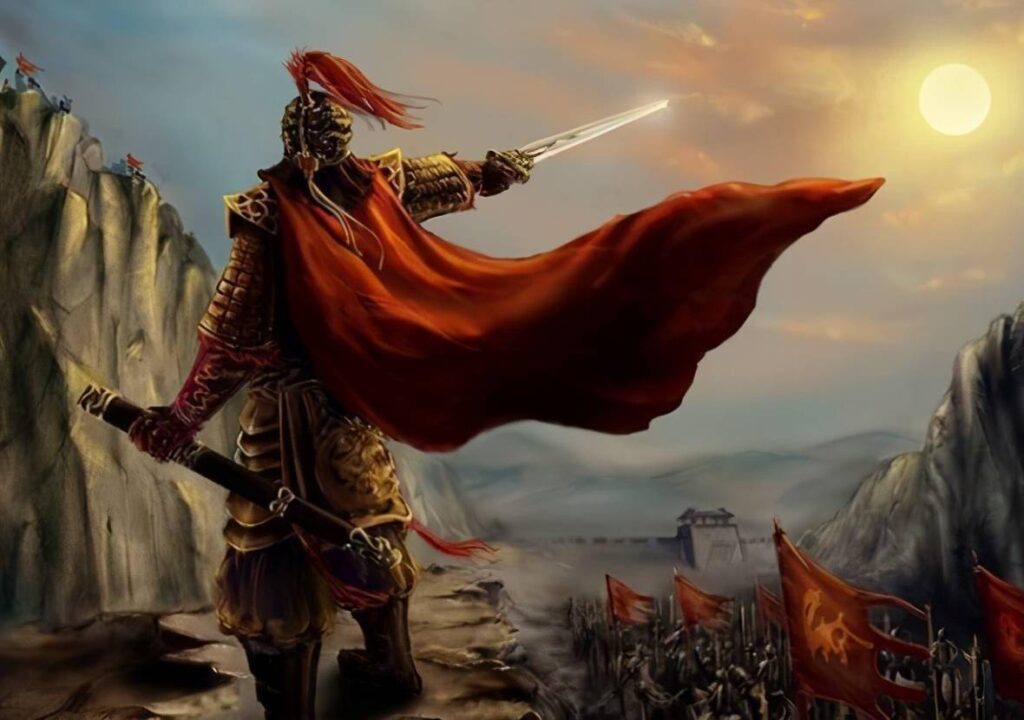
After a few years passed, there was yet another change in the ruler of Jin state. Duke Yi Wu passed away, and his son, Yu, succeeded him as Duke Huai of Jin.
This change infuriated another famous figure of the Spring and Autumn Period, the formidable ruler of the western frontier, Duke Mu of the Qin state.
Originally, Duke Huai of Jin was once sent as a hostage to the Qin state and became the son-in-law of Duke Mu of Qin. Both sides enjoyed a close relationship, known as the “friendship between Qin and Jin.” However, Duke Huai of Jin eventually abandoned his wife and secretly returned to Jin to ascend the throne, betraying his father-in-law and breaking ties.
Duke Mu was furious, and the consequences were severe. He decided to teach this treacherous ingrate a lesson and turned his attention to Jin’s exiled prince, Chong Er, who was living under Chu’s protection.
“Come, let’s deal with that ingrate together. I will give you everything you desire,” Duke Mu said to Chong Er and his companions. They were overjoyed and hurried to meet Duke Mu in Qin, forming an immediate strategic alliance. Duke Mu even married his beloved daughter, Huai Ying, the former wife of Duke Huai of Jin, to Chong Er, further cementing the “friendship between Qin and Jin” (though it was quite awkward, as they ended up sharing the same wife).
Duke Huai of Jin realized the danger he was in, and fear gripped him. In his desperation, he raised his blade and killed one of the oldest ministers of Jin, Chong Er’s grandfather, Hu Tu. He threatened Xian Zhen and others, saying, “Leave Chong Er immediately, or I will wipe out your entire clans!”
In order to secure his throne, he was now capable of doing anything.
This is insane!
The Jin exiles in Qin couldn’t stand idle anymore, and even Chong Er’s former companions, Luan Zhi and Xie Gu, who were still in Jin, couldn’t wait any longer, lest they turn into dead tortoises.
So they decided not to wait any longer! They rebelled!
In the spring of 637 BCE, Chong Er led the Qin army to their rendezvous, while Luan Zhi and Xie Gu took action simultaneously. Almost overnight, Duke Huai of Jin found himself deserted and had to flee hurriedly, only to be killed by marauding soldiers in Linfen.
Finally, after enduring years of internal strife, Jin’s chaos came to an end. Chong Er and his companions returned to their homeland after being away for 19 long years. Everything felt both prolonged and sudden.
Now, Chong Er was no longer the pitiful wanderer he used to be; he became Duke Wen of Jin, the new ruler of the state. Naturally, Xian Zhen followed him, rising to become the sixth most influential figure in Jin’s military and political structure, known as the Assistant Chief of the Lower Army.
Let’s explain: Jin’s military and political structure during the Spring and Autumn Period was unique, characterized by its integration of military and political power. It consisted of six ministers – the Chief of the Central Army, Assistant Chief of the Central Army, Chief of the Upper Army, Assistant Chief of the Upper Army, Chief of the Lower Army, and Assistant Chief of the Lower Army. They formed a “Military Committee,” managing both administrative and military affairs. The Chief of the Central Army held the highest authority next to the ruler. During the 19 years of exile, Duke Wen of Jin developed a deep brotherly bond with his companions, so he shared the power (the six ministers) among them. Besides, due to the loss of able men in Jin’s royal family during the years of internal strife, Duke Wen had no choice but to rely on noble families. However, he did not expect that these six noble families would grow and develop over the centuries, leading to the division of Jin among the Han, Zhao, and Wei families! But that’s a story for another time.
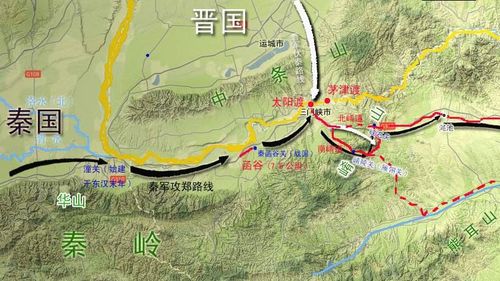
At this moment, Xian Zhen was still an assistant, while the Chief of the Central Army, Xie Gu, excelled in governance. However, this position was soon to be replaced because, during peacetime, the ruler needed someone skilled in statecraft. But when it came to warfare, the person who understood military matters the best was undoubtedly Xian Zhen. So, who else could take the position but him?
Xian Zhen spent 19 years wandering outside, traveling across the land and witnessing the struggles for hegemony among the various states. Every day and night, he pondered how he could defeat enemies and make Jin a dominant power on the battlefield. The old rigid concept of “war as a ritual” would undoubtedly be inadequate. He needed to find a new path, a fresh strategy.
In the end, he discovered this path, which no one had ever considered before. But now he not only thought of it but also found it, making him invincible in the world.
Now, he only lacked an opportunity to put his plan into practice and ascend to the pinnacle of success.
Any person aiming for success desires an opportunity. However, opportunities can come early or late, and sometimes, they may never come at all. But one thing is certain: opportunities belong to those who are prepared.
